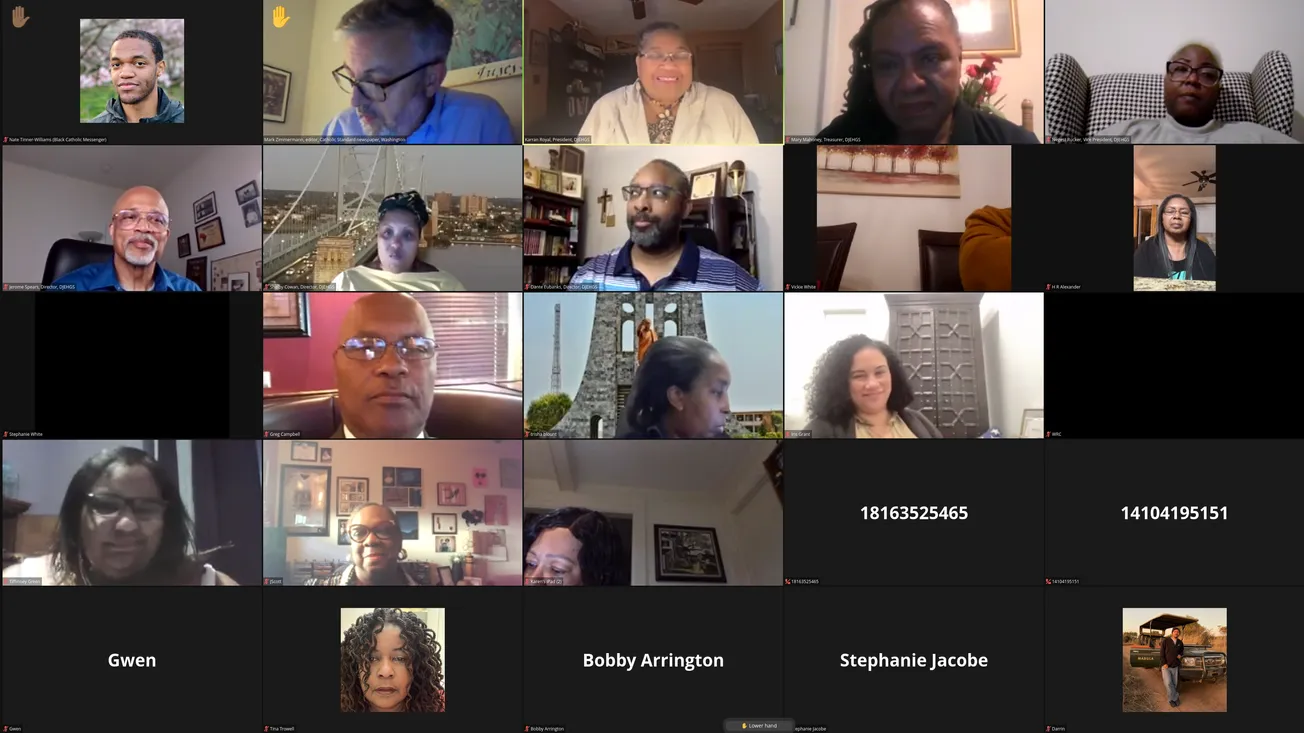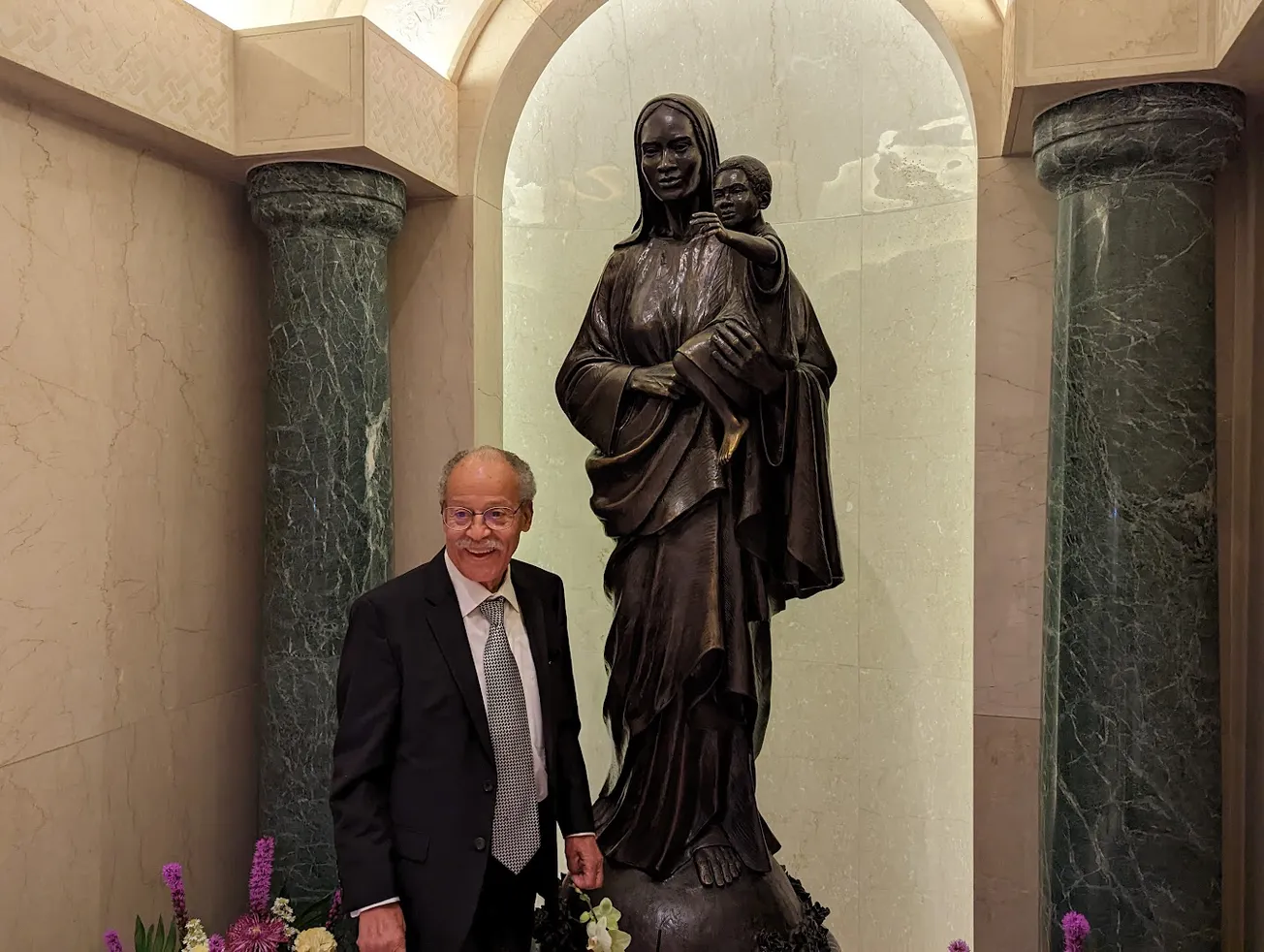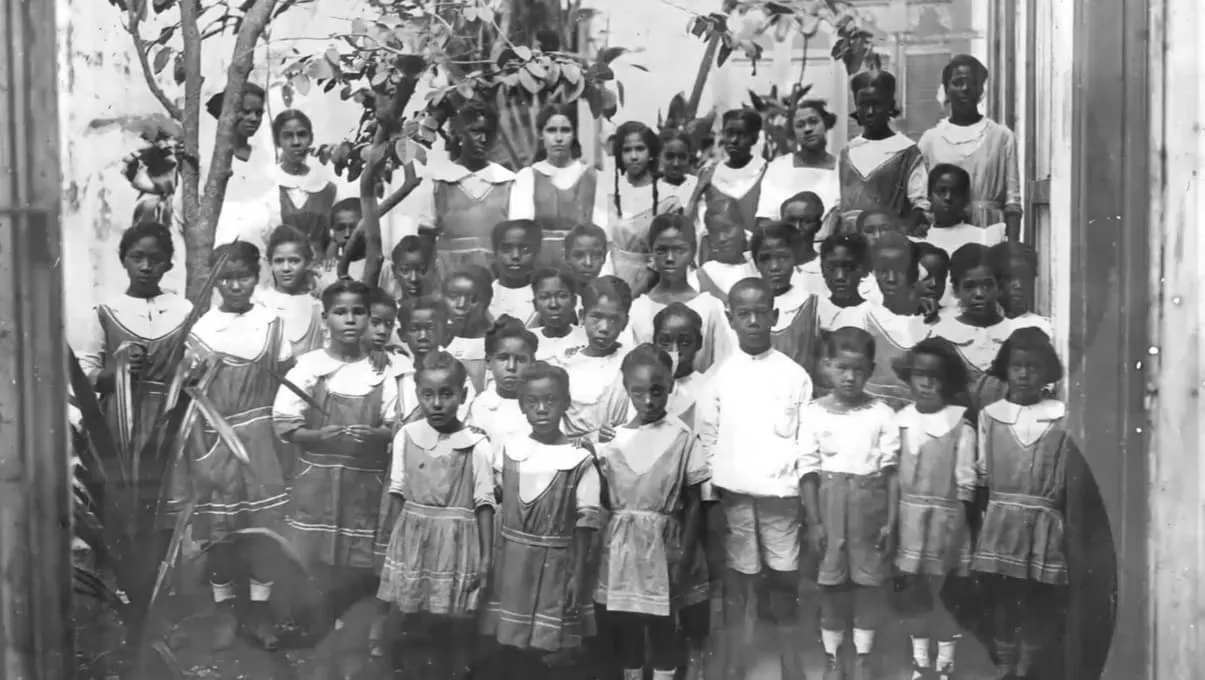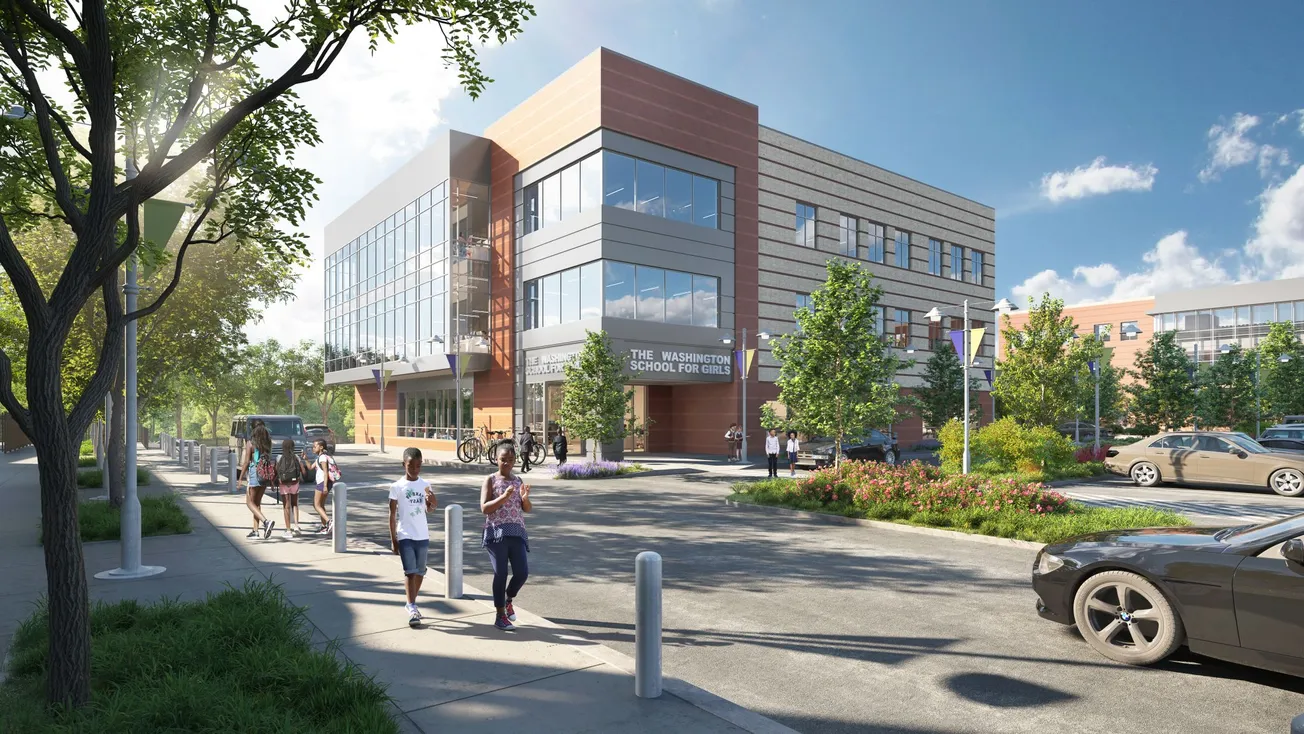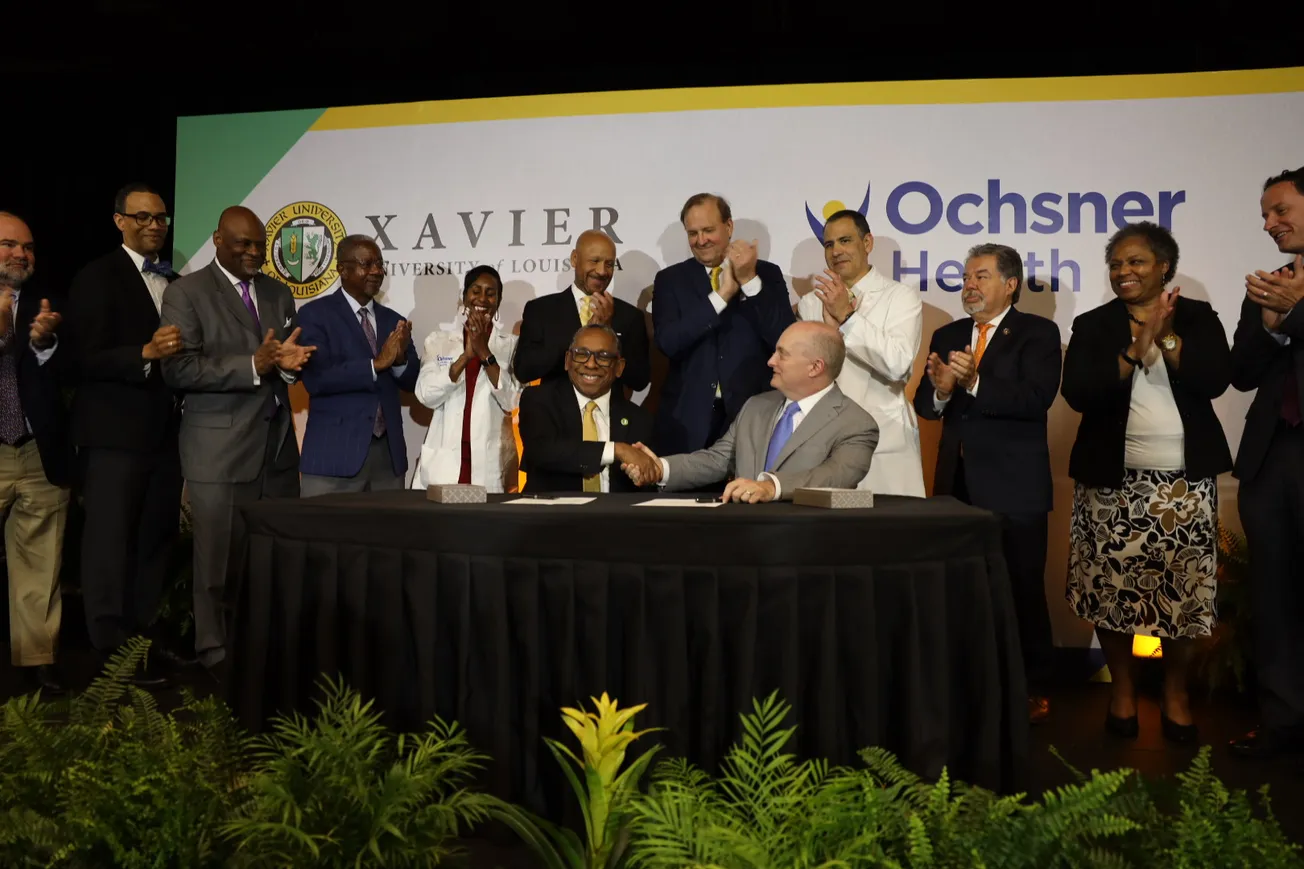A new research organization will work to uncover the full story of Jesuit enslavement in the United States, having announced its launch as an independent nonprofit.
Descendants of Jesuit Enslavement Historical & Genealogical Society (DJEHGS) shared the news on April 18, during the latest in a series of ongoing virtual meetings for the previously unincorporated genealogical community that dates back to pandemic times.
“We are already four years into this,” said Karran Harper Royal, who serves as president of the new nonprofit. Though she is not herself known to be a descendant of Jesuit enslavement, she is married to one and has played an outsize role in helping to connect the descendants community.
“We've already proven our commitment to the research,” she added. “We are very committed.”
The new group is one of several descendant-related organizations founded since the widespread public revelation of slaveholding by the Jesuits, the world’s largest Catholic religious order. That unveiling dates back to 2016, when an exposé was published in the New York Times by Rachel L. Swarns.
The order, also known as the Society of Jesus, held African-descent people in bondage on properties throughout the Western Hemisphere, including stateside in Maryland, Pennsylvania, Louisiana, Missouri, Alabama, Kentucky, Kansas, Illinois, and the District of Columbia. Of particular interest in recent years has been the infamous 1838 slave sale at Georgetown University, wherein 272 men, women, and children were sold downriver to Louisiana to salvage the school’s finances.
Though DJEHGS' research focus includes Jesuit slaveholding in the order’s former Maryland Province, which ran the university, the group does not limit itself to any particular “sale, Jesuit-founded institution, or descendant group,” according to information shared during Thursday’s official launch event.
“Like our organization, our research is descendant-led, and interpreted with a descendant perspective.”



The group's leadership includes multiple figures formerly connected to similar organizations. Royal was formerly the executive director of the GU272 Descendants Association, which has long been associated with the Jesuits’ attempts at reparative justice for the 1838 sale, including the $100M Descendants Truth & Reconciliation Foundation established in 2021.
Both of those organizations have met with controversy over the years from descendants who criticize a lack of transparency and failure to allow descendants writ large to decide what constitutes authentic socioeconomic repair. Royal eventually left the GU272DA and became one of its most outspoken critics.
Negest Rucker, a descendant of the Jesuit-enslaved woman Louisa Mahoney, was also among the dissenting voices and now serves as vice president of DJEHGS. She says the new nonprofit is a reflection of the participants’ long-term commitment to self-discovery.
“What's been powerful about this work for me is using my skills and my voice to find [Mahoney’s] other siblings who remained in Maryland, and being able to share what they did after emancipation and what their descendants did,” Rucker said on Thursday.
“Through this work, I've been able to piece together other Mahoney family lines that I did not know and likely may never have been able to find without the resource resources and skills that I learned from other members of [DJEHGS].”
Shelby Cowan, another board member for the nonprofit, also spoke in glowing terms of the group’s impact on her as she has discovered more of her ancestors’ legacy.
“This journey has meant everything to me… I was at the point where I was going to stop doing my family history because there was nothing else for me to find—until I met this group,” said Cowan.
“I'm still working on finding my ancestors in this process, but I found family here.”
Royal says formalizing the group as a nonprofit entity partially serves as an avenue to receive funding for their work, which involves costly genealogical analyses, research materials, and trips to former sites of Jesuit enslavement.
Another outworking of what is now incorporated as DJEHGS is the 2023 short documentary film “Finding Us,” which chronicles the experiences and perspectives of several of the organization’s members, including Royal, Rucker, and Jerome V. Spears.
The film, which arose from a filmmaker’s interest in the Jesuits’ reparation efforts, screened at film festivals last year and will make its digital premiere on Monday, when it will become available on PBS.org. It will also air on local PBS stations in Louisiana on Wednesday, April 24, and in Maryland on Monday, April 29.
Fee-based membership in DJEHGS is open to descendants, their relatives, allies, and organizations seeking to promote the work of the nonprofit. More information on applying or donating can be found on the DJEHGS website.
Nate Tinner-Williams is co-founder and editor of Black Catholic Messenger.


